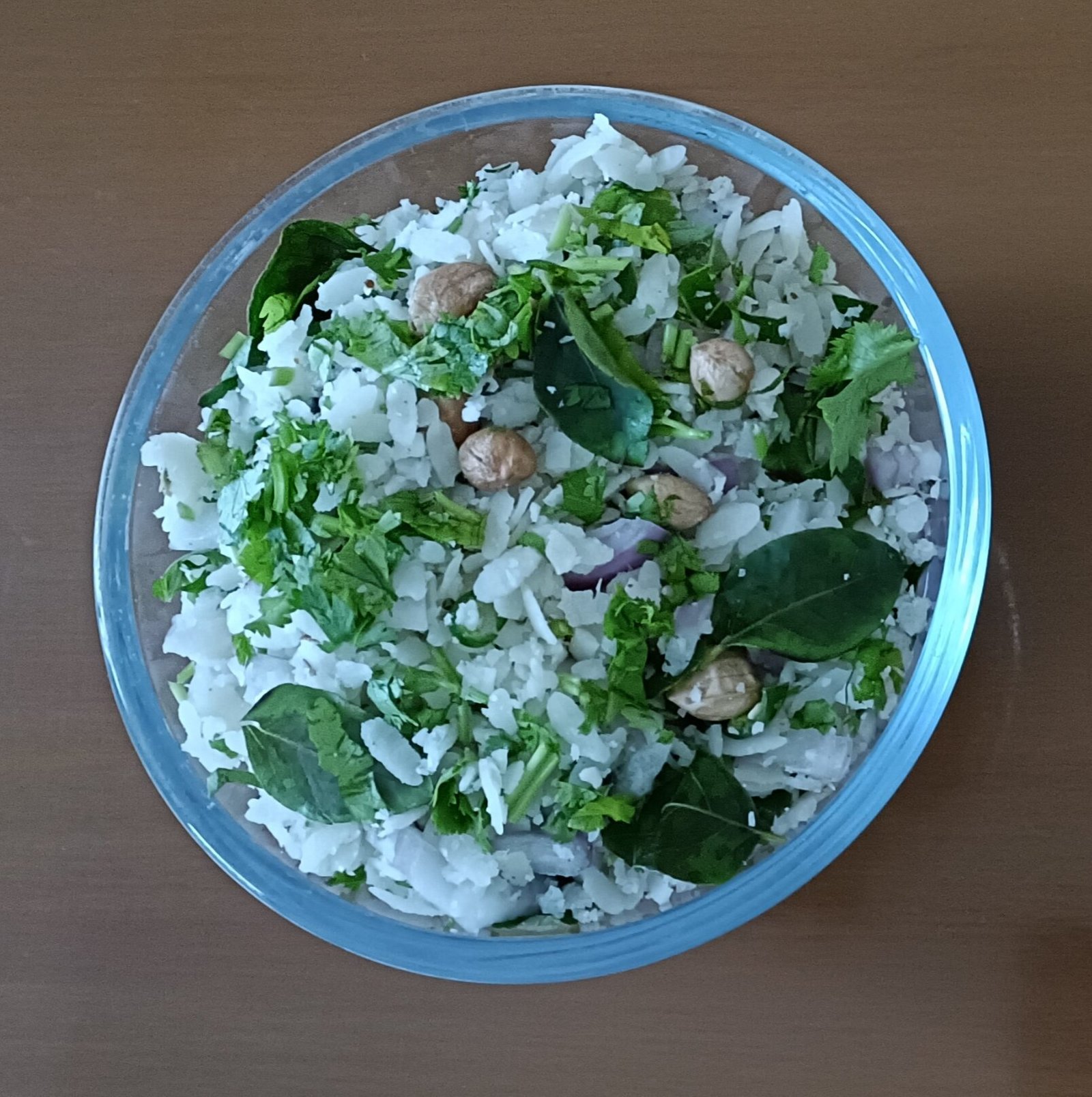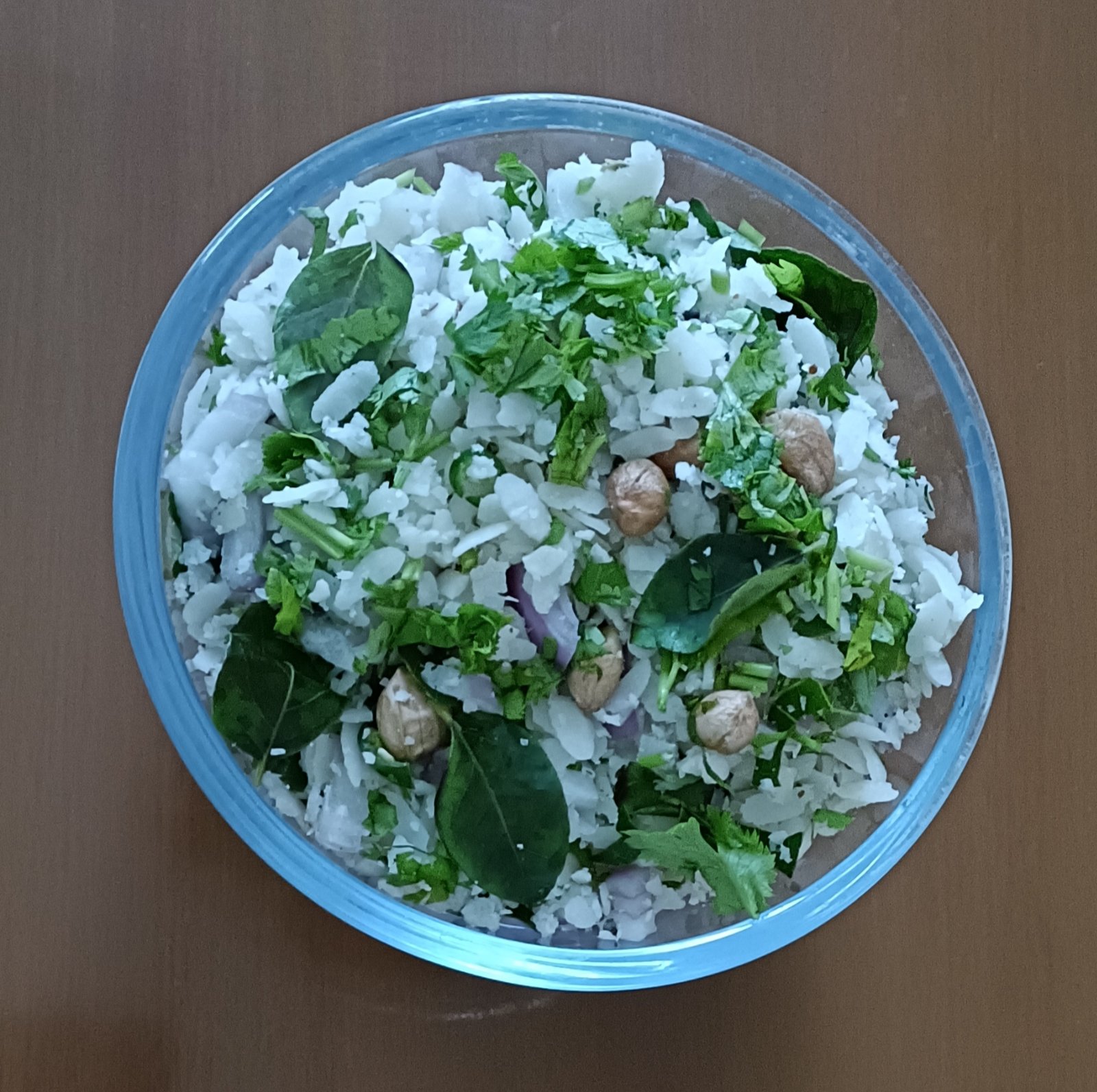There are several ways to make Dadpe Pohe and it is a dish I loved even as a child. I especially loved the one made with thin poha and without adding any water and was made with just onions, coconut, dhania-jeera powder, red chilli powder, sugar and salt. It took time to chew it but it was delicious and the taste still lingers on.
Recipe: Darshana Muzumdar
Serves 2 as part of a traditional Indian breakfast
Ingredients
- 4-6 cups thick poha
- 1 cup peanuts
- 2 large onions
- 1 cup grated coconut
- 1 lime
- 2 green chillies
- 1 cup chopped coriander
- 1 tsp sugar
- salt to taste
For the Tempering
- 2 tbsp groundnut oil
- 1 tsp mustard seeds
- 2 sprigs curry leaves
- ¼ tsp asafoetida
- ½ tsp turmeric powder (optional)
Method
Rinse and drain the poha and keep it aside to become soft.
Chop the onions and green chillies and put them in a large steel pot or bowl. Add the juice of one lime, salt and sugar and gently knead the onions with your hand so they release moisture. Keep this aside till you do the tempering.
Heat the oil and add the mustard seeds. Once they pop, add the curry leaves and then, if using, add the asafoetida and turmeric powder.
Add the peanuts and sauté them till they are lightly brown and lose their raw taste.
Put all this into the onion in the bowl, add the softened poha, grated coconut, and half the coriander and mix all this well.
Dish this in a bowl and garnish with the rest of the coriander and serve.
For the Whole-Food Plant-Based (WFPB) version:
Use unrefined salt like rock salt.
Soak the peanuts for 4-5 hours or overnight, or dry roast them.
Do not use oil for the tempering. Heat an iron tempering ladle and add the mustard seeds. Once they pop, transfer them to the onion mixture. Add the curry leaves and sauté them for a few minutes. Transfer them to the bowl. Add the asafoetida to the ladle and sauté it for a few seconds or till it releases its aroma. Transfer it to the onions. Turn the heat off and add the turmeric. Sauté it taking care to not allow it to burn. Transfer this to the onions. Follow the rest of the recipe as above.

Share this:
- Click to share on Facebook (Opens in new window)
- Click to share on WhatsApp (Opens in new window)
- Click to share on Twitter (Opens in new window)
- Click to share on Pinterest (Opens in new window)
- Click to share on LinkedIn (Opens in new window)
- Click to share on Skype (Opens in new window)
- Click to share on Reddit (Opens in new window)
- Click to share on Tumblr (Opens in new window)
- Click to share on Pocket (Opens in new window)
- Click to share on Telegram (Opens in new window)
- Click to print (Opens in new window)

